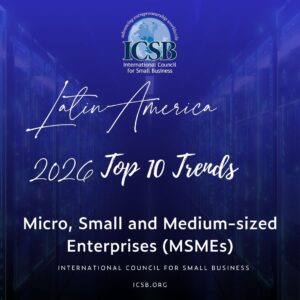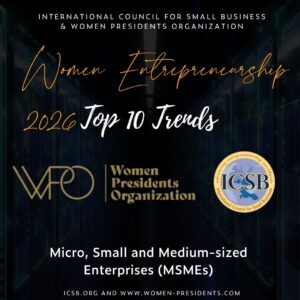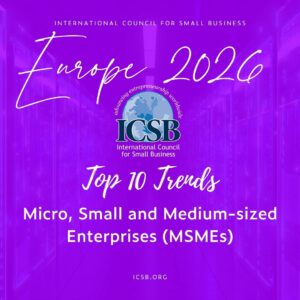
The Top 10 Micro, Small, and Medium Enterprises Trends for 2026 – S. Korea
As concerns about “Peak Korea” intensify, Korea’s MSMEs find themselves at the center of a defining national moment. Korea’s Top Ten
By Kichan Kim
Professor of Business Administration, The Catholic University of Korea Chair of the Board, International Council for Small Business Visiting Professor of Management, GW University

“SMEs are the backbone of South Korea’s economy, and startups are its driving force of innovation. As we approach 2025, SMEs must adapt and innovate amidst major changes such as AI-driven digital transformation, globalization, and the fight against bureaucracy.”
Key Task: Overcoming the Greatest Enemy of Entrepreneurship – Bureaucracy
“Bureaucracy is the enemy of innovation.”
01
02
03
04
05
06
07
08
09
10
Conclusion: Preparing for a New Leap
“In 2025, the future of South Korea’s SMEs and startups depends on overcoming bureaucracy, embracing AI and digital transformation, expanding globally, and fostering Humane Entrepreneurship. Together, governments, businesses, and startups must collaborate to achieve sustainable growth and innovation.”
“Bureaucracy is the enemy of innovation. AI is a survival necessity for SMEs.”
Be part of the largest and oldest network of small businesses and entrepreneurs in the world.

As concerns about “Peak Korea” intensify, Korea’s MSMEs find themselves at the center of a defining national moment. Korea’s Top Ten

As Latin America moves through an age of slow growth and global uncertainty, its MSMEs rise as the architects of renewal.

Women are reimagining the future of entrepreneurship. In 2026, women entrepreneurs are not simply building companies; they are building cultures of

Europe 2026 Top Ten Trends for MSMEs: Europe’s entrepreneurial landscape is entering a defining decade. Advances in artificial intelligence, deep tech,